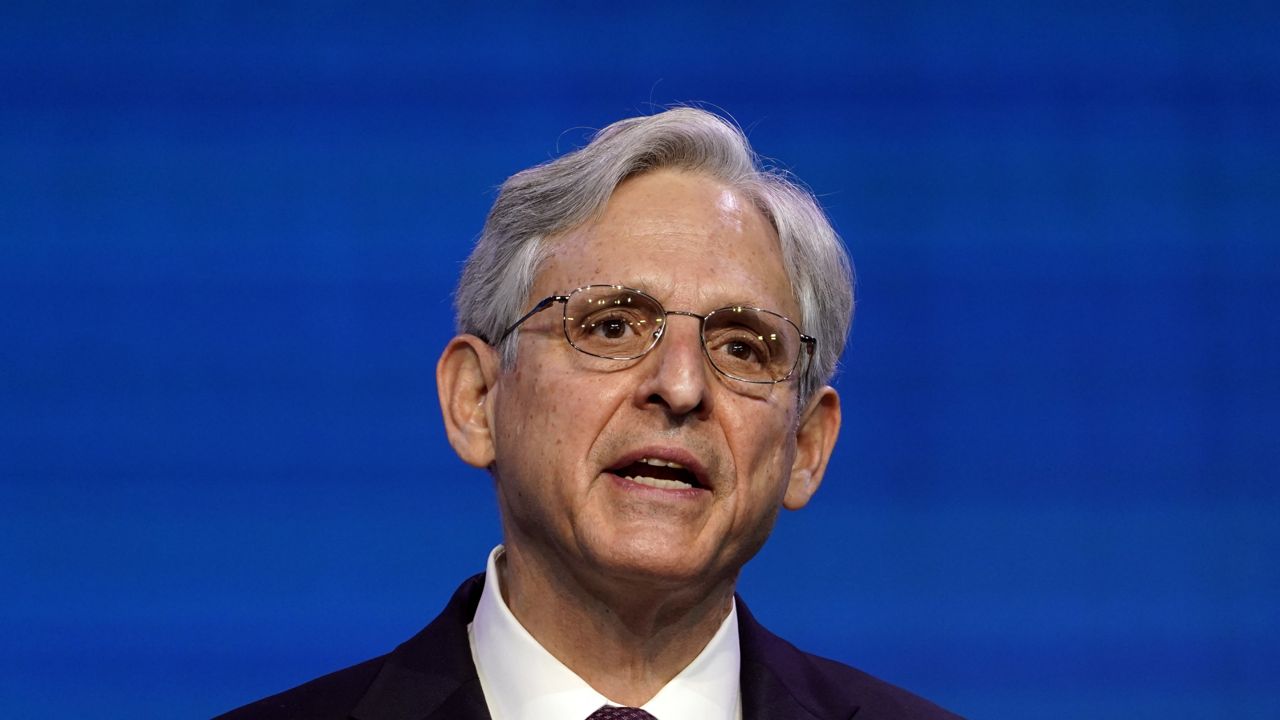As Democrats move to swiftly confirm President Joe Biden’s Cabinet nominees, Republicans have pushed back against requests to confirm Merrick Garland as Attorney General early next week.
Garland is among a handful of President Joe Biden’s Cabinet nominees whose hearings in front of senators have yet to be scheduled. Sen. Dick Durbin (D-IL) over the weekend penned a letter to Sen. Lindsey Graham, the sitting head of the Senate Judiciary Committee, asking him to hold a one-day hearing and vote on Garland’s nomination on Feb. 8.
That would mean Senators would have to vote on Garland’s nomination the day before Donald Trump’s second impeachment trial begins on Feb. 9.
Durbin, citing security concerns given the violent insurrection on Capitol Hill that took place in early January, stressed the need to have the Department of Justice head in place as soon as possible.
Durbin will soon take over control of the committee from Graham — as Republicans previously held the majority in the Senate, Graham will continue to serve as committee head until an organizing resolution is finalized in the 117th Congress.
"I find it regrettable that we have been unable to reach agreement on a timeline for processing this nomination,” Durbin wrote. “While I remain committed to working with you and Senator Grassley, the Committee’s incoming Ranking Member, to find bipartisan consensus on timing, there is simply no justification for delaying Judge Garland’s hearing any further.”
In the meantime, Graham rejected Durbin’s request for a speedy hearing for Garland, writing in a letter that the move was “highly unusual” as the Senate prepares for “its first ever impeachment trial of a former president, and only its fourth trial of a president, incumbent or not.”
“An impeachment is no small thing. It requires the Senate’s complete focus,” Graham continued. “This is why I didn’t consider any judicial nominees during last year’s impeachment trial. Democrats do not get to score political points in an unprecedented act of political theater on one hand while also trying to claim the mantle of good government on the other.”
Graham did say while he agreed Garland deserved a “prompt” hearing, it would not take place on Feb. 8.
Durbin criticized Graham’s decision during a speech on the Senate floor Tuesday afternoon, saying Garland’s confirmation was in the best interests of national security.
“Despite the unresolved nature of the Senate’s organizing resolution, other senate committees have come together on a bipartisan basis to schedule prompt hearings and votes for nominees,” Durbin said in part. “We need to do the same when it comes to the nomination of Merrick Garland to attorney general. Why would we let partisanship get in the way of national security?”
Usually a routine matter, the organizing resolution for the chamber became a power play by Sen. Mitch McConnell (R-Ky.) once Democrats swept to control after the Jan. 5 special election in Georgia and the new senators took the oath of office after Biden’s inauguration on Jan. 20.
McConnell, who served as the previous Senate Majority Leader when the GOP controlled the Senate, had been holding up the organizing agreement, which divides up committee assignments and other resources, as he tried to extract a promise from Schumer of no changes to the filibuster.
Schumer would not meet the Republican leader’s demands, but McConnell said early last week he had essentially accomplished his goal after two Democratic senators said they would not agree to end the filibuster. Without their votes, Schumer would be unable to change the rules.
He was referring to Sens. Joe Manchin (D-WV) and Kyrsten Sinema (D-AZ), who have expressed reservations about doing away with the current filibuster rules.
The details of the rest of the organizing resolution are expected to proceed largely as they did the last time the Senate was evenly divided, in 2001, with any immediate changes to the filibuster, at this stage, appearing to be off the table. It is unclear when exactly the resolution will be finalized.
The Associated Press contributed to this report.



